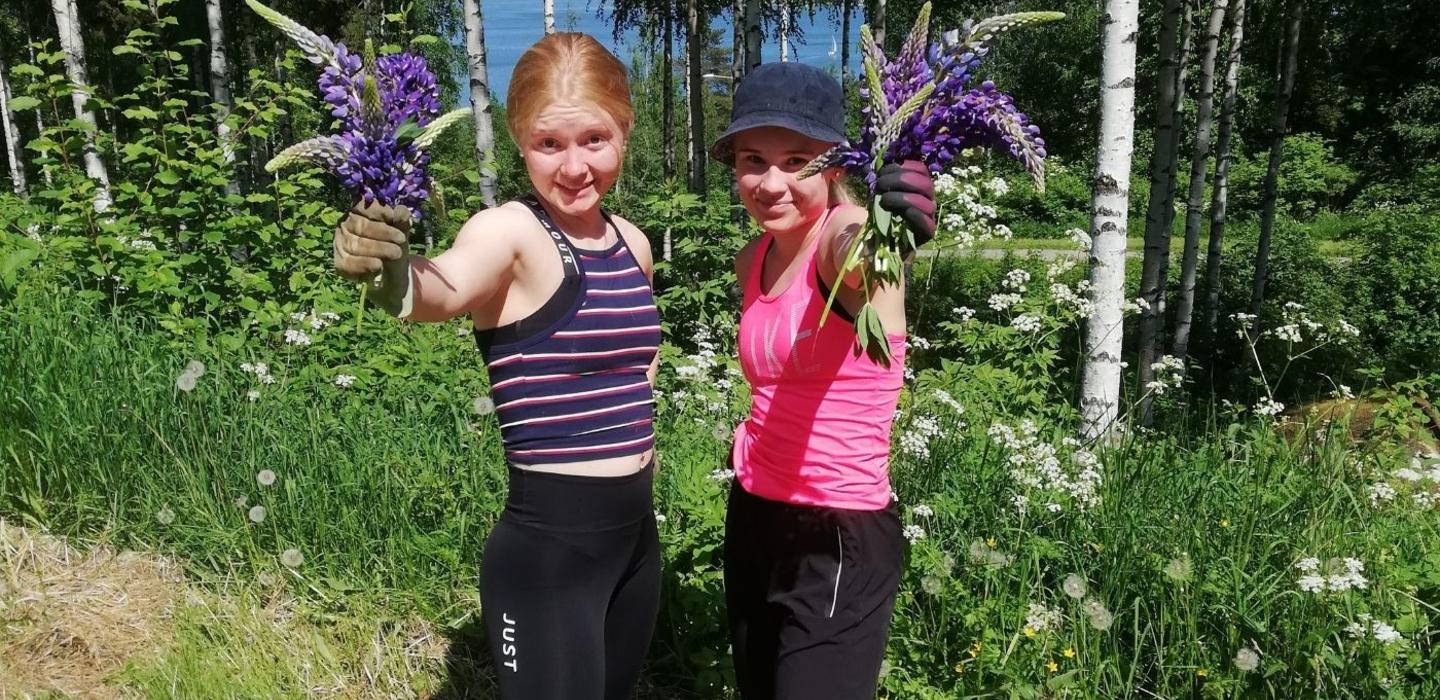Sometimes it’s kind to be cruel (to invasive plants)
Now and again, kindness always matters as a Lion
The 2020-2021 Kindness Matters Service Award winners have been announced. As Lions, we believe that kindness is always in fashion. Lions and Leos are continually looking for ways to improve their communities and the world around them, grounding every service project they do in the idea that all people thrive when shown kindness.
Something had to be done to support young people.
The Kindness Matters Service Award (KMSA) was created to recognize innovative and creative service projects in one of the global cause areas that left a positive impact on their communities.
One award winner, the Lions Club Lahti Ankkurit in Finland, devised a way to show love to the environment while creating jobs for young people who were eager to work.
Giving some love to the land
Kindness isn’t only something Lions show toward people, but to the earth as well.
Among the many things the COVID-19 pandemic affected for people in Finland were summer jobs, which are traditionally taken by young people on break from school. Anne Vahala of Lions Club Lahti Ankkurit, which sponsored the Lions Lahti Green City project, said the pandemic eliminated many summer jobs for young people with most of them being eliminated during the summer of 2020.
“They were hit hard by COVID,” she said. “Something had to be done to support young people.” And they figured they could do some good for their environment along the way.
The club launched the Lions Lahti Green City project to remove invasive species, including the Spanish slug (Arion vulgaris), Lupin (Lupinus polyphyllus), and Himalayan balsam (Impatiens glanulifera).
Himalayan balsam has pink, red or white flowers that may look pretty, but grow in dense stands that suppress native grasses and other flora.
The Spanish slug, which is brown or brick red with black tentacles, eats leaves, flowers and the bulbs of plants. It can also rapidly proliferate and is a threat to ecosystems and other slugs.
Lupin, originally native to the mountains of western North America, arrived in Finland as an ornamental plant in the 19th century. Today, the plant that features large, vividly colored flowers has proliferated beyond gardens and is a threat to smaller local plants and to butterflies and moths.
Coming together
The Green City project, which took place in Lahti, a city of about 120,000 residents in southern Finland, attracted 152 volunteers who worked 2,254 hours to remove the invasive species from 17 acres in the city, including in parks, along streets, on the banks of rivers and from other natural areas.
The club worked with the city’s environmental department to determine the areas to focus on. They also held a brief training for Lions who supervised the project.
“We visited all the places where alien species were to be removed,” Vahala said. “Therefore, every supervising Lion could identify alien species, knew the way to operate, and knew the places of action.” The club received a government grant for the project that covered costs such as tools, training and insurance.
Vahala said that young people, who received a small stipend and certificate, enjoyed the project.
They were grateful for the guidance and the opportunity to do something for their own environment,” she said.
See more kindness in action
The winning clubs represent all constitutional areas and show just how meaningful it is to be a Lion or Leo. See the complete list of winners.
Annemarie Mannion is a freelance writer and former reporter for the Chicago Tribune who loves writing about the good work Lions do.
The coronavirus (COVID-19) pandemic has impacted communities around the world in different ways. To ensure we’re serving safely wherever we live, Lions should follow the guidelines of the Centers for Disease Control, World Health Organization or local health authorities. Visit our Serving Safely page for resources that can help you safely serve your community.

